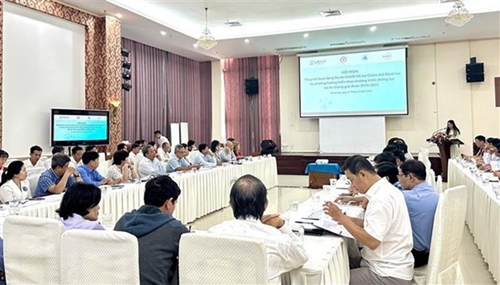At a workshop to review the USAID Support to End TB project in the Mekong Delta province of An Giang, she said the project will be carried out in 16 localities with high TB incidence in 2024, with technical support given to An Giang to detect, treat and build TB prevention plans.
    |
 |
|
At the workshop to review the USAID Support to End TB project in the Mekong Delta province of An Giang on October 27 |
According to the steering board of the Vietnam National TB Program, Vietnam is among 30 countries with a highest burden of TB in the world. Treatment of the infectious disease has been promoted by the TB prevention network at all levels in collaboration with state-owned and private medical establishments.
The USAID project, carried out in nine provinces across Vietnam since 2020, has helped detect 15,000 people with active TB, and 9,000 others with latent infection. Technical support was given to localities, enabling sustainable coverage for quality TB care at the primary level under Vietnam’s social health insurance.
Besides, it has supported 74% of communal medical facilities to procure TB drugs to patients, while helping upgrade the Vietnam TB Information Management Electronic System to better manage TB information, latent TB and multidrug-resistant TB.
An Giang has the highest TB burden in Vietnam, with thousands of drug-susceptible TB cases and hundreds of drug-resistant TB patients detected every year.
With the USAID project, An Giang detected 8,700 TB cases during March 2020 – September 2023.
Deputy Director of the provincial People’s Committee Phan Van Dien Phuong said the project helps An Giang improve TB prevention system as well as diagnosis and treatment of drug-susceptible TB and multidrug-resistant TB, and promote local resources in TB prevention and control.
Meanwhile, deputy head of the steering board of the Vietnam National TB Programme Nguyen Hoa Binh stressed local resources play an important role in ensuring effective and sustainable TB prevention and control, adding An Giang should pen rational policies to support medical TB patients with difficult circumstances as well as medical staff engaged in TB prevention work.
Source: VNA